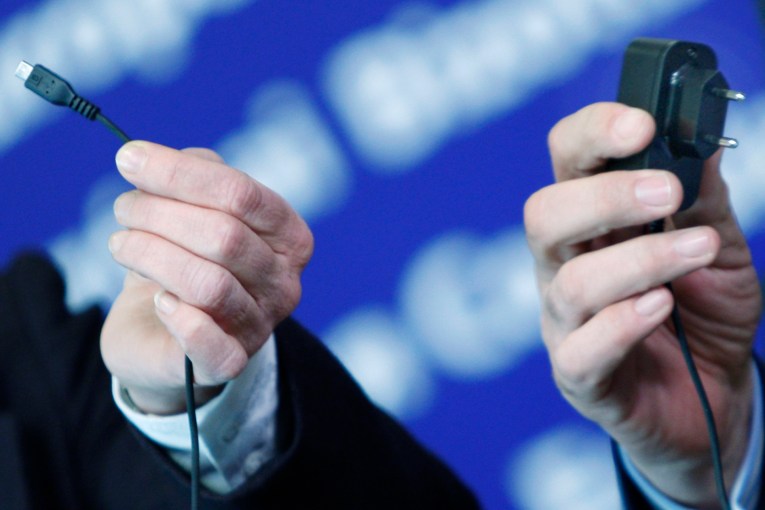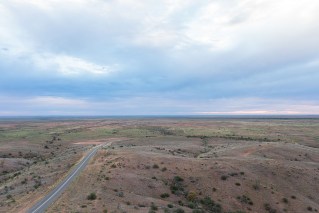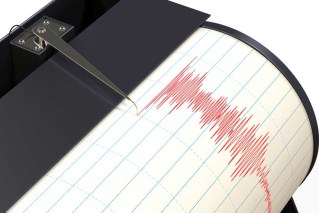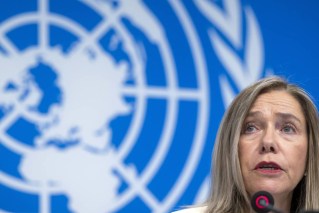Coronavirus is changing the way we recycle waste and it’s not all bad news
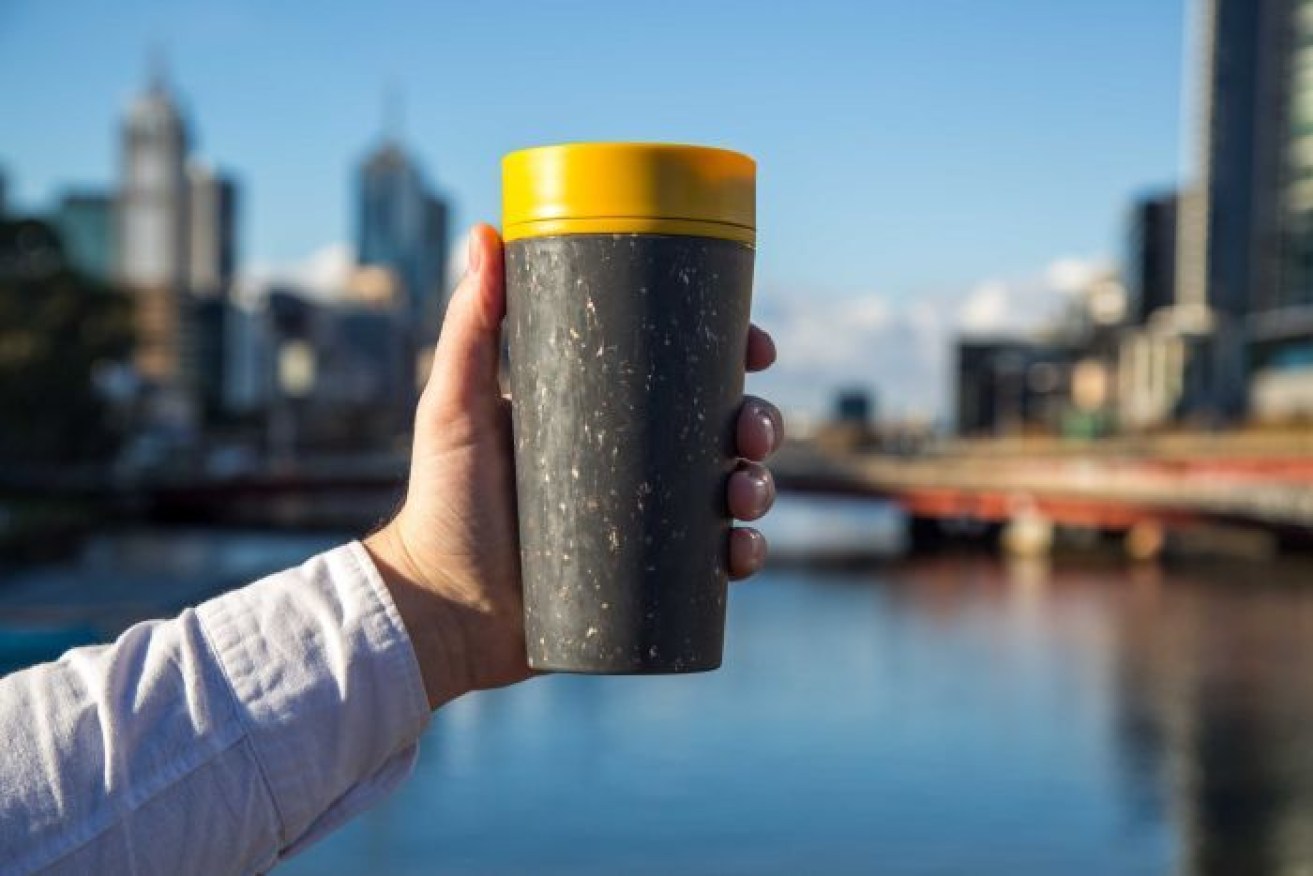
Reusable coffee cups have had to fall out of use during the coronavirus pandemic. Photo: Closed Loop
Coronavirus, and the many restrictions and rules it has imposed upon us, has justifiably drawn almost all of our attention as we attempt to flatten the curve.
With the radical changes made to our lives in just a few weeks, the way we run our households, work and even prepare meals has shifted.
For some businesses and individuals, recycling and sustainable initiatives have been pushed to the side as their priorities shifted.
But there are others who have doubled down in their efforts to minimise their waste and make sustainable decisions as they maintain social distancing.
And, in just a short time, there are signs that a continued interest in recycling waste could lead to new jobs as we adjust the way we live.
Restrictions halt some sustainability initiatives

Staff at Clay cafe are keeping their distance while serving takeaway. Photo: Michael Black
For cafes and restaurants who had previously prioritised sustainable options, the lockdown has caused some disruption to their policies.
Eleanor Horn of Clay cafe in Canberra’s north said they had willingly stopped using reusable cups to avoid transmitting the virus.
“It’s all been fairly easy for the most part. People have been very understanding,” she said.
“The health of the community is our highest priority and I think people understand that.”
She said business at the cafe had remained relatively steady, with people regularly dropping by, placing a takeaway order and waiting outside for their order to be brought to a table for collection.
But Ms Horn said the interest in sustainable options remained strong, and customers were keen to keep using their cups, but had to be told it was not possible.
“I think people have been really conscious of reducing their cup usage in the past and I think when these restrictions are lifted that Canberra will go back to the way it’s been before, hopefully,” she said.

The ACT government has put its foot down on single-use plastics including coffee cups and takeaway cutlery. Photo: Jake Evans
For its part, the ACT government, which has banned some single-use plastics, has offered a reprieve for businesses during this time.
“We’re not placing unnecessary regulation, particularly on the hospitality sector,” City Services Minister Chris Steel said.
“We’ll look to do that next year, once we’re in the recovery phase. We’re allowing the hospitality sector a little bit of breathing space … we know that they are just trying to survive.”
‘Please keep your heart in the project’

Tim Miller, who founded Lids 4 Kids in the capital, has asked people to continue to collect their lids but not donate them until the pandemic ends. Photo: David Sciasci
Other initiatives have also been affected, including the charity Lids 4 Kids, run by Tim Miller.
The organisation recycles bottle lids and turns them into plastic limbs for children in need of prosthetics.
But with concerns around transmission of COVID-19, Mr Miller said he had stopped accepting the lids.
“We’ve got 200 to 250 collection points here in Canberra, so we just asked everybody if they could please no longer bring in their lids from home – not so much because of the contamination on the lids per se, but just because of that human interaction between the dropoffs,” he said.
“Lids 4 Kids is still very much going full steam ahead in the background, but, as far as the collections, that’s stopped for at least six months.”
Mr Miller said he had noticed people were still collecting lids and that, with more time on their hands, were devoting a bit more effort towards cleaning and storing them.
He encouraged parents to turn it into an activity for their children, with sorting, washing and storing them all a part of the process.
He said he was hopeful people would continue to save their plastic lids for use once the pandemic had ended.
“We’ve begged everybody, please don’t throw them out. Keep your heart in the project,” he said.
“This plastic is never going to go away and as soon as the pandemic is over wanting to rescue that from landfill is always going to be a priority.”
Interest in sustainability grows at home

Brook Clinton has noticed more demand for compositing services since self-isolation rules came into place.
For Brook Clinton of Capital Scraps Composting, the pandemic has had the opposite effect.
Stuck at home with fewer options for eating out, she said people were cooking more, and had noticed an increase in demand for her community composting company.
She typically composts the food waste of more than 100 households as well as a local business.
“I think a lot of people are doing more home cooking, which is great, and maybe more cooking from scratch, so that’s wonderful,” she said.
“It’s an unusual business and not something people are used to paying for – someone else to do your composting – so in terms of the economic situation, it was a little bit nerve-racking.”

Flower petals thrown into people’s compost has offered up a bit of cheer in recent weeks.
As people change their behaviours to reduce the risk of transmitting coronavirus, there has been some confusion whether plastic is the best option, with New South Wales MP John Barilaro even encouraging people to return to single-use plastic bags when shopping.
But experts like Meru Sheel, an infectious disease epidemiologist from the Australian National University, say there is no evidence plastic is a better option, especially if other measures, including hand sanitiser, are put in place.
A former biochemist who has worked with pathogens, Ms Clinton said she was taking extra care to sanitise and wear gloves as she cycled around town collecting people’s compost buckets.
But she said she understood why people were anxious.
“Obviously we have to be very careful, but there’s also an element of trust in all of this and I would hope that we could keep that conversation open,” she said.
“There will always be some risk, but I’m still taking my reusable shopping bag to the supermarket and managing that responsibly.
“So I hope people can just ask questions if they are worried about things and for us all to consider the environment as well as human health at these times.”
She said she hoped her small business could grow into a network around Canberra and even become a social enterprise that might be repeated elsewhere to replace other jobs that were not possible at the moment.
“I feel for the people who have lost their casual jobs – I know how that feels, I’ve had times of unemployment – and the composting and other similar social enterprises could be an opportunity for new job creation for different types of jobs that we haven’t thought about before.
“What I’m doing is obviously quite small, but perhaps we can see a proliferation of jobs like this.”
